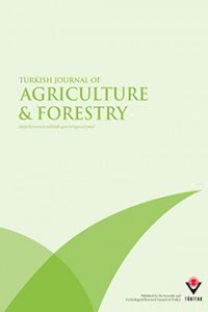Search for O-type Plants in Sugar Beet
This research was started in 1995 in order to find O-types, which are important basic materials in breeding monogerm hybrid sugar beets, and to develop their male sterile parallels in six monogerm families previously bred in the Plant Breeding Department of the Sugar Institute. For this purpose, a total of 600 (100 from each family) O-type candidate fertile plants were crossed with testers which were known to be cytoplasmic male steriles (CMS) by mating one fertile and one male sterile plant in a cage insulated with cotton cloth. In crossing male sterile and fertile plants, a sufficient amount of seed was obtained in 250 cages. In the F1 generation, which was obtaind from male sterile parents pollinated by O-type candidate male plants, flower observations were performed and then six fertile plants yielding100% male sterile offspring were selected as O-type. In order to develop male sterile parallels , the three O-types which had characteristics such as low selfing depression and high field emergence, vigor, pollen yield and seed frequency, selfing and back-crossing were continued, while those which showed excessive selfing depression were eliminated. Capability of general, special genetic adaptibility and adaptation of selected O-types will be tested and O-types showing heterosis at high rates will be used as basic materials of monogerm hybrid varieties.
Anahtar Kelimeler:
Sugar beet, O-type, male sterile, selfing, crossing
Search for O-type Plants in Sugar Beet
This research was started in 1995 in order to find O-types, which are important basic materials in breeding monogerm hybrid sugar beets, and to develop their male sterile parallels in six monogerm families previously bred in the Plant Breeding Department of the Sugar Institute. For this purpose, a total of 600 (100 from each family) O-type candidate fertile plants were crossed with testers which were known to be cytoplasmic male steriles (CMS) by mating one fertile and one male sterile plant in a cage insulated with cotton cloth. In crossing male sterile and fertile plants, a sufficient amount of seed was obtained in 250 cages. In the F1 generation, which was obtaind from male sterile parents pollinated by O-type candidate male plants, flower observations were performed and then six fertile plants yielding100% male sterile offspring were selected as O-type. In order to develop male sterile parallels , the three O-types which had characteristics such as low selfing depression and high field emergence, vigor, pollen yield and seed frequency, selfing and back-crossing were continued, while those which showed excessive selfing depression were eliminated. Capability of general, special genetic adaptibility and adaptation of selected O-types will be tested and O-types showing heterosis at high rates will be used as basic materials of monogerm hybrid varieties.
Keywords:
Sugar beet, O-type, male sterile, selfing, crossing,
- ISSN: 1300-011X
- Yayın Aralığı: Yılda 6 Sayı
- Yayıncı: TÜBİTAK
